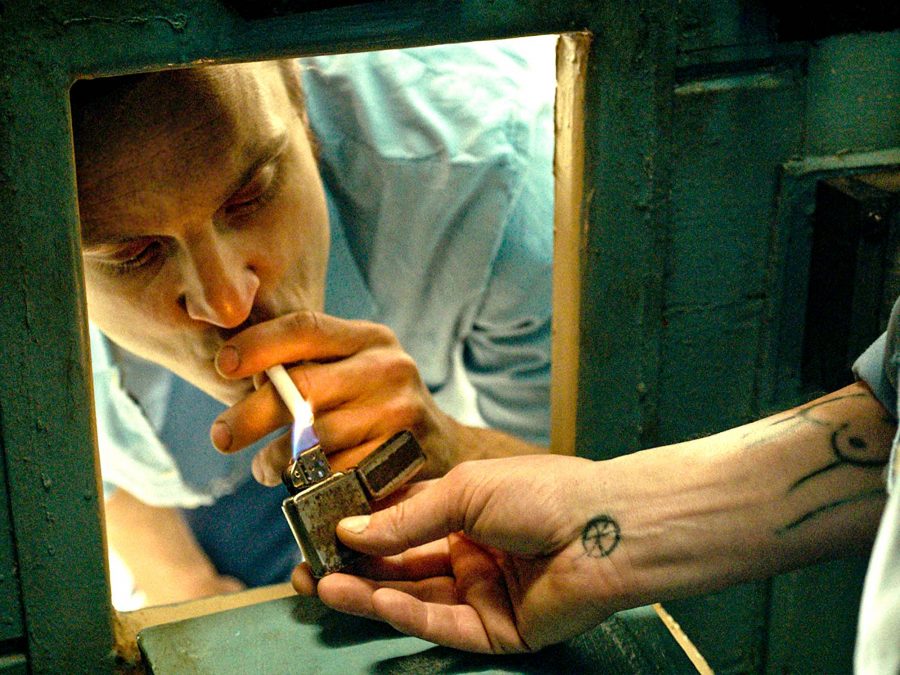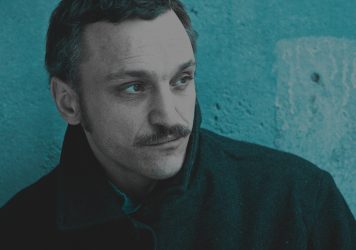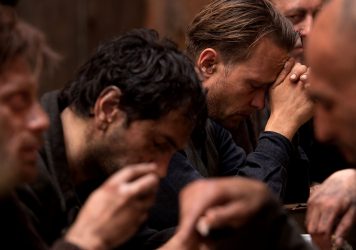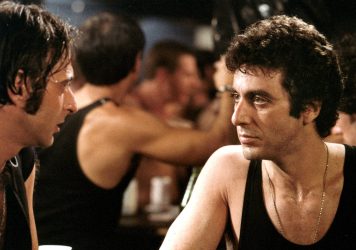Sebastian Meise’s profoundly sensual second feature is anchored by a standout performance from Franz Rogowski.
Homosexuality was legalised in West Germany in 1969. Sebastian Meise’s Great Freedom is set almost entirely prior to this date, weaving together prison time spent during and after the World War Two. These dates merge together almost indistinguishably, taking place in identical cells and yards that fade in and out of our consciousness.
An exclusively male cast of wardens and prisoners come and go, all revolving around the constant of one gay man. Meise introduces Hans Hoffmann (Franz Rogowski) in a microcosmic montage of sexual encounters in a public bathroom.
Grainy footage shows acts later read out in court as illegal under the homophobic statute Paragraph 175 – raw displays of passion reduced to clinical Latin descriptors. The Super 8 Kodak film recalls the stark sexual realism of Fassbinder, an allusion that recurringly punctuates the film to ground it in actual and cinematic queer history.
Great Freedom is told almost exclusively through its visuals. The film was shot by Crystel Fournier, who also did the cinematography for the first three features directed by Céline Sciamma. The sensibility of queerness is often more powerful than explicit depiction, embedded within the aesthetic fabric of the film itself. The female gaze Fournier has developed through her collaborations with Sciamma allow her to avoid fetishising queer characters on screen.
Meise’s aim is to move beyond the focus of the sexual act itself, that which the law has fixated on, to present a more human depiction of homosexual desire. His focus then is on touch and non-bodily forms of intimacy – Fournier closes in on subtle gestures like half-met glances and brushes of hair. Hans chainsmokes throughout, the trading of cigarettes a euphemistic symbol dating from the Hays Code memorably used by Jean Genet in his 1950 prison-set short film Un Chant d’Amour.

These moments of sensuality are extended gently, often framed by molecular openings in cell doors and walls. Substantial periods of time are spent with Hans in solitary confinement, flooding the auditorium with darkness, only to be alleviated by a shaft of light and a pack of fags thrust inside.
Like the veiled codes gay people were forced to use by an oppressive legal system, queerness is communicated by the film through synonymity and insinuation. The elements of Great Freedom revolve ad nauseum – Hans becomes almost reliant on the prison system to remain sexually satisfied, ironically providing a space in which it is easier for him to meet other gay men.
It’s a powerful role for Rogowski, one of the most compelling actors working today, who played similarly enigmatic romantic figures in Transit and Undine by Christian Petzold. While other men move through then out of the picture, Rogowski holds everything together with an exquisite deftness that is often emotionally overwhelming.
What Great Freedom so expertly captures is inevitable failure of queerphobic rehabilitation. Hans’s sexuality is innate, a part of his essence, which will never change or fade away. This message may feel historic, but Meise shows the importance of a potent reminder.
Support our independent journalism and receive monthly film recommendations, exclusive essays and more
Become a memberPublished 9 Mar 2022
Franz Ragowski is a force of nature, and DoP Crystel Fournier is one of the best in the business.
Sebastian Meise asserts himself as a compelling directorial voice.
A spiraling, repetitive film that uses its structure to drive home a powerful queer narrative.

By Elena Lazic
The beguiling star of Sebastian Meise’s Great Freedom reflects on his career so far and the future of cinema.

Private, unseen protest forges a spiritual path to God in Terrence Malick’s rhapsodic resistance drama.

By Anton Bitel
William Friedkin’s 1980 thriller casts an unwavering eye over New York’s gay S&M subculture.